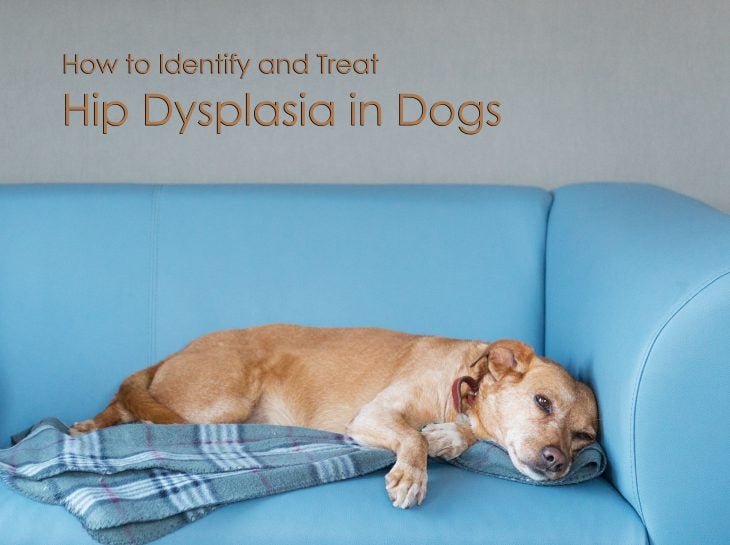Lately, you’ve noticed that your once active dog is having trouble getting up and around. It no longer jumps off the couch to greet you, or it doesn’t look forward to its walks. In addition, you notice that your dog is walking with a limp. Could it be your dog is suffering canine hip dysplasia?
What is canine hip dysplasia? Simply put, hip dysplasia is when the ball and socket joint in the hips don’t fit like they are supposed to. The ill-fitting joint can lead to osteoarthritis which is the inflammation of the joint. This leads to deterioration of the cartilage in the joint and causes acute pain and reduced functioning of the afflicted joints. According to the University Of Pennsylvania School Of Veterinary Medicine, “Hip dysplasia is one of the most common skeletal diseases seen in dogs. Gender does not seem to be a factor, but some breeds are more likely to have a genetic predisposition for hip dysplasia than other breeds. Large and giant breeds are most commonly affected, including the Great Dane, Saint Bernard, Labrador Retriever and German Shepherd Dog. Small breed dogs can also be affected, but are less likely to show clinical signs.”*
What are the symptoms of hip dysplasia in dogs? Some of the signs that your four-legged companion is suffering from canine hip dysplasia are: reduced activity, preferring to sit its doggy bed or couch all day, slipping on slick floors, walking with a limp, exhibiting a difficulty in getting up, loss of muscle mass in the hind quarters, and/or weight gain everywhere else except the thighs. If you notice your dog has one or more of these symptoms, take it to a veterinarian as soon as possible.
How can canine hip dysplasia be treated? The most common types of treatment for hip dysplasia in dogs are: non-steroidal anti-inflammatory medications, femoral head and neck excision, and total hip replacement.
- Non-Steroidal Anti-Inflammatory Drugs (NSAIDs) – this is the most non-invasive treatment for canine hip dysplasia. NSAIDs help by reducing inflammation and pain.
- Femoral head and neck excision for dogs with canine hip dysplasia – this procedure “eliminates hip pain by removing the femoral head and neck and initiating the development of a fibrous false joint that permits ambulation. The false joint is less stable with a reduced range of motion than the normal joint, which in turn, can cause an abnormal gait.”*
- Total hip replacement for dogs – by far, this treatment has been proven highly effective in treating hip dysplasia in dogs. It is a very expensive procedure, and a short post-operative period recovery, but the results are very positive.
Pain Management Medications – To help reduce the pain caused by canine hip dysplasia, your veterinarian might recommend one of the following medications: Previcox or Meloxicam. Ask your veterinarian which pain relieve medication is right for your dog.
Joint Supplements for Dogs – To help promote joint health, you might want to consider giving your dog one of the following joint supplements: Vetcrafted Joint Care Supplements or Dasuquin with MSM for Dogs.
In conclusion, large breed dogs are most likely to suffer from canine hip dysplasia even though it can affect small dogs too. Hip dysplasia in dogs is a hereditary disease that is inherent in certain breeds of dogs. Canine hip dysplasia occurs when the ball and socket in the hips do not fit properly. This leads to inflammation of the joints which causes rapid deterioration of the cartilage. The results are pain, loss of muscle mass, and lameness. The three most common methods of treating hip dysplasia in dogs are Non-Steroidal Anti-Inflammatory Drugs, Femoral head and neck excision, and total hip replacement. The latter being the most effective and costly.
Does your dog suffer from hip dysplasia?
If yes, let us know in the comments how you were able to treat it, please.
*Dealing with Canine Hip Dysplasia – Twice. (July 2013) https://www.vet.upenn.edu/about/news-and-events/publications/penn-vet-extra/penn-vet-extra—july-2013/dealing-with-canine-hip-dysplasia—twice Accessed on June 6, 2016.





